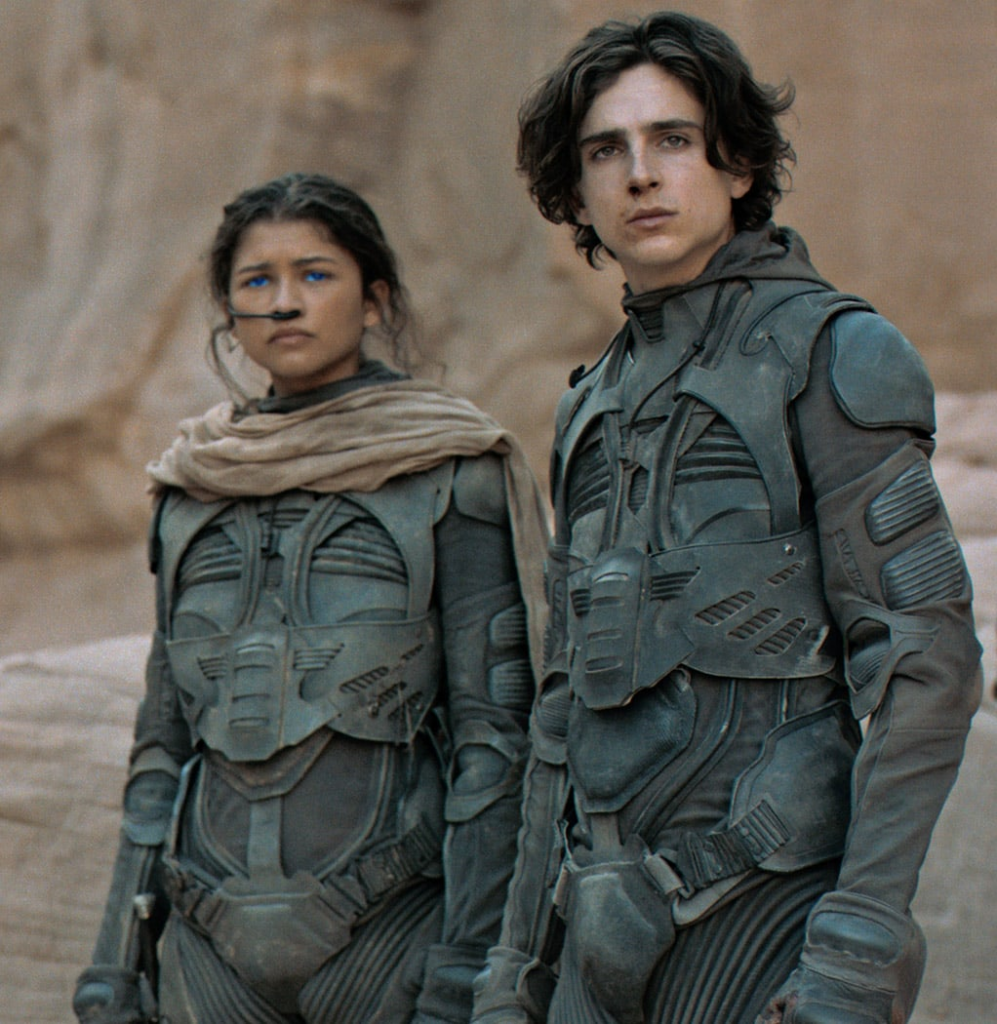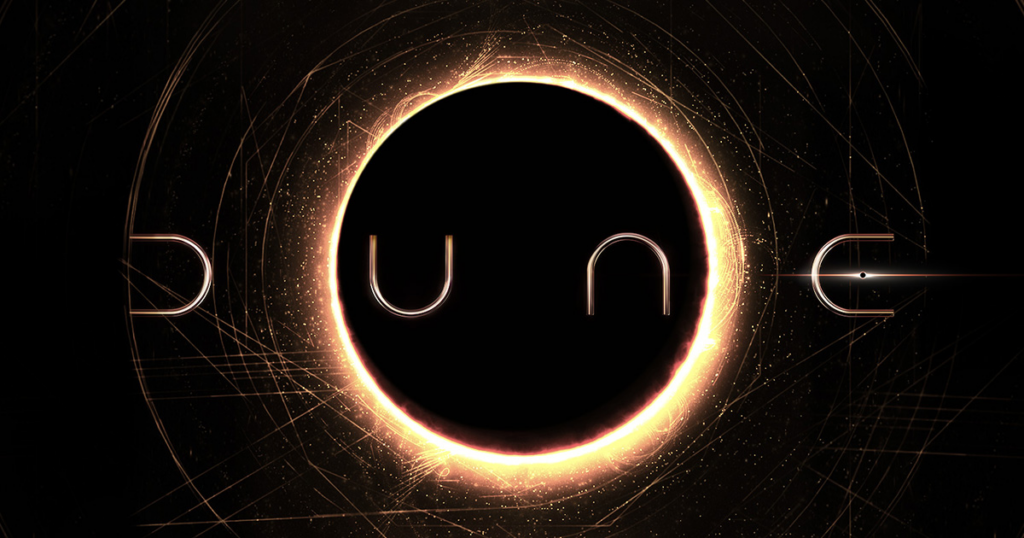By Ermioni Pavlidou,
The screening of Dennis Villeneuve’s version of Dune has been one of the most anticipated post-quarantine cinematographic blockbuster releases of 2021. The film is based on the world created by Frank Herbert in his titular novel, published in 1965. With an all-star cast, immense budget, and, a highly praised director with previous experience of successfully handling adaptations of big franchises with respect to their creators and themes; Dune —or more suitably, its first part— was finally depicted in a way that did justice to how it was envisioned.
This is the third time this sci-fi universe is attempted to be brought to life on the big screen. The first to ever try was veteran American filmmaker David Lynch, who in 1984 ventured an attempt at condensing said universe in a 2 hour-and-17-minute movie, restricting it and losing the whole meaning in the process. The second attempt was made by Alejandro Jodorowsky, who attempted a shorter version of a documentary about Dune, but it quickly lost its potential, was left unfinished, and strayed even further away from the essence due to producing disagreements. So, is this the third time in which the charm is finally fulfilled? After only a month since its initial release, viewers seem to think so.
Dune, the essence of classic blockbuster sci-fi extravaganza, and its timelessness
Dennis Villeneuve craftily used the visual tools he possesses at this age of cinema and combined them with slight, just as much as needed and not intricately tiring hard-to-follow, exposition to introduce the audience —including those who are unfamiliar with Herbert’s world— to the plot that will unravel itself before their eyes. Special effects play a highly important role for this spectacle to be properly depicted, and they were handled with great precision. Landscapes and, of course, the infamous imposing, terrifyingly giant worms that were obviously created with the assistance of CGI technology seemed natural, fitting, and exactly what they were meant to be. The movie was so exquisite visually and the scenery was beautifully displayed so much as it was characterized as a homage to the movie Laurence of Arabia. Its grandiosity even sparked an idea about whether it is, this generation’s The Lord of the Rings, however, that is an even bigger discussion. Everyone’s performance was on point echoing the atmosphere of imminent danger, power games, and never-ending war.
The story takes place in the year 10191 and follows the awakening course of young Paul Atreides (portrayed by Timothée Chalamet), heir of the noble House Atreides, son of Duke Leto Atreides (Oscar Isaac), who is head of planet Catalan, and Lady Jessica (Rebecca Ferguson), a powerful member of a mystical cult-like sisterhood called the “Bene Gesserit”. He is trying to fulfill his “destiny” in the midst of an insidious intergalactic war, dealt with feeble politics about the most precious possession of them all, the key for interstellar travel: “melange” or just “the spice”. The spice only grows in a deserted planet named “Arrakis”, which has been requisitioned by other powerful houses, the Harkonnen, exiling the native inhabitants, the Fremen, detaching them from the benefits of the spice and leaving them to fend for themselves against the dangers that take the form of enormous worms that are triggered by movement and swallow everything in their path.

It is becoming increasingly clear that this whole allegoric ordeal resembles the intertemporal socio-political problems humanity has been facing and recreating for years. There is subtly put criticism throughout the film, and book, about colonization: Arrakis is exploited for its spice, direct reference to oil drainage; religion, the Messianic representation of Paul, and the prophecy for “the chosen one”; ecology and the fate of the planet that becomes more ominous due to our greed; and politics that view land as marks on a map to be guarded by those who harvest it excessively by force.
Dune, the type of Star Wars movie or the other way around?
With a movie of such a theme, the resemblance with the other prominent sci-fi intergalactic franchise, Star Wars, is inevitable. But which does one refer to the other, or is it bidirectional? In all fairness, the initial ideas were firstly written by Frank Herbert in 1965, though, they were evolved and expanded by George Lucas in 1977 when he made the Star Wars universe happen.
The two movies deal with similar issues: an empire resembling a dictatorship and the rebels that try to re-establish democracy. There is also the origin story of a luminous and talented young man that feels and tames the great power, coursing within him, as was the case with Luke Skywalker in the original Star Wars trilogy. The “Force” in the Star Wars universe is also quite similar to “The Voice” in Dune. The Jedi and their mind tricks (“these are not the drones you are looking for”) are no different than the Bene Gesserit sisterhood seeking their Kwisatz Haderach. Some of the spaceships resembled imperial X-Wings and many shots of the outer rim were almost identical to that of Star Wars. Last but not least, the moment Leto says that he always wanted to be a pilot has been interpreted by many —myself included— as a direct reference to Oscar Isaac’s character in the Star Wars sequel trilogy, Poe Dameron, who was an exceptional pilot.

All in all, Dune was the franchise cinemas and people were waiting for; especially after not being able to get the full experience of special effects, intense battles, and soundtrack through streaming platforms. It is not solely based on these elements, but some of the cinematic magic is lost when it is watched on a smaller screen with an inferior image or sound analysis. The first part of Villeneuve’s vision for Dune was very hopeful and intrigued the interest for the final part which hasn’t yet gotten the green light to start filming. We sure hope it does.
References
- “Dune” Review: A Hero in the Making, on Shifting Sands, nytimes, Available here
- Dune review – Denis Villeneuve’s sci-fi epic gets off to an electrifying start, theguardian, Available here
- Dune Review, rogerebert, Available here
- How Dune Shaped the Star Wars Saga, denofgeek, Available here




